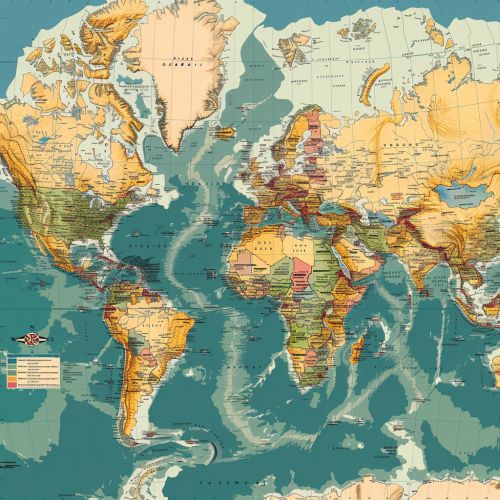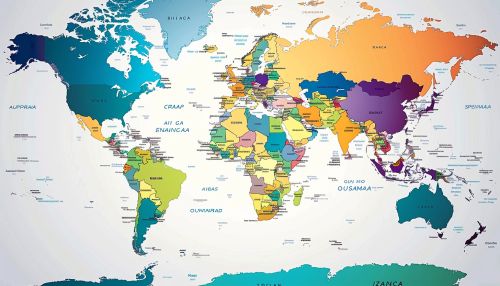Geoeconomics
Introduction
Geoeconomics, a term derived from the Greek words "geo" meaning earth and "oikonomia" meaning household management, is a branch of economic geography that deals with the interaction between economics and geopolitics. It focuses on the effects of geography on economic activity and explores how economic phenomena influence the structure and dynamics of the world economy.


Concept and Definition
Geoeconomics is defined as the study of the spatial, temporal, and functional aspects of economic activity. It is concerned with the location, distribution, and spatial organization of economic activities across the world. The term was first used in the late 20th century to describe the economic strategies used by states to gain geopolitical advantage. Today, it is used to describe a wide range of phenomena, from the economic effects of political decisions to the impact of economic processes on the environment.
History and Evolution
The concept of geoeconomics emerged in the late 20th century as a response to the increasing globalization of the world economy. As economies became more interconnected, it became clear that economic activity was not evenly distributed across the globe. This led to the development of theories and models to explain the spatial patterns of economic activity.
In the early stages, geoeconomics was primarily concerned with the economic aspects of geopolitics. However, over time, the focus shifted to include a broader range of issues, including the impact of economic processes on the environment and the role of economic factors in social and political change.
Theoretical Framework
Geoeconomics is based on several key theories and concepts. One of the most important is the concept of economic geography, which argues that the location and distribution of economic activity are influenced by a variety of factors, including natural resources, infrastructure, and the availability of labor and capital.
Another key concept is the idea of economic interdependence, which suggests that the economies of different countries are interconnected and that changes in one economy can have significant effects on others.
Finally, geoeconomics also draws on theories of international relations and political economy, which explore the relationship between economic and political power and the ways in which economic factors can influence political decisions.
Geoeconomic Strategies
Geoeconomic strategies are tactics used by states to gain economic advantage. These can include measures to attract foreign investment, efforts to gain control over strategic resources, and policies aimed at promoting economic growth and development.
One of the most common geoeconomic strategies is the use of economic sanctions. These are measures taken by one or more countries to restrict economic activity with a particular country in order to influence its behavior. Sanctions can include trade embargoes, asset freezes, and restrictions on financial transactions.
Another common strategy is the use of economic diplomacy, which involves the use of economic tools to achieve diplomatic goals. This can include efforts to promote trade, attract foreign investment, and negotiate economic agreements.
Impact of Geoeconomics
The impact of geoeconomics is wide-ranging and significant. It can influence the distribution of wealth and power in the world economy, affect the stability of international relations, and shape the course of economic development.
One of the most important impacts of geoeconomics is its effect on the global distribution of wealth and power. By influencing the location and distribution of economic activity, geoeconomics can affect the balance of power between countries and regions.
Geoeconomics can also have significant effects on international relations. Economic factors can influence the behavior of states, affect the outcome of international negotiations, and shape the dynamics of international conflicts.
Finally, geoeconomics can influence the course of economic development. By affecting the availability of resources, the structure of markets, and the distribution of wealth, geoeconomics can shape the economic prospects of countries and regions.
